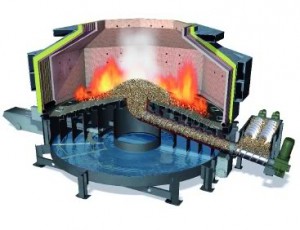Jacobs Engineering Group Inc. on July 15 announced today that it completed a study investigating the potential use of Redeemable Biomass Electricity Credits (RBEC) in the province of Riau in Indonesia.
The project was in collaboration with Universitas Muhammadiyah in Riau, Sumatra with grant funding provided by the Energy and Environment Partnership Indonesia (EEP), supported by the Ministry of Foreign Affairs of Finland. 
Through the study, Jacobs assessed the feasibility of rural communities in Riau trading biomass with a power plant operator in exchange for RBECs credited against their electricity accounts; potentially increasing their access to affordable electricity and improving quality of life for residents, as well as reducing the environmental impact of agricultural waste.
The study explores how the RBEC concept could work in practice; analyzing financial, social, logistical and environmental considerations for the various stakeholders involved; including farmers, collectors, transporters, power plant developers, electricity purchasers and regulators. The completed study, which also identified potential pilot project locations, was presented to the Ministry of Energy and Mineral Resources of the Government of Indonesia.
In making the announcement, Jacobs Group Vice President Kevin McMahon stated, “We are pleased to take part in opportunities like this one that utilize our technical expertise to examine ways to deliver potential benefits to the communities of countries around the world in which we operate.”
Jacobs is committed to delivering safe and sustainable solutions for its clients worldwide. Last year, Jacobs contributed to reducing clients’ carbon footprint by 4.3 million metric tons. To learn more, please download Jacobs’ Sustainability Report as a PDF or an app.
Jacobs is one of the world’s largest and most diverse providers of technical professional and construction services.
Statements made in this release that are not based on historical fact are forward-looking statements. We base these forward-looking statements on management’s current estimates and expectations as well as currently available competitive, financial and economic data. Forward-looking statements, however, are inherently uncertain. There are a variety of factors that could cause business results to differ materially from our forward-looking statements. For a description of some of the factors which may occur that could cause actual results to differ from our forward-looking statements please refer to our 2013 Form 10-K, and in particular the discussions contained under Items 1 – Business, 1A – Risk Factors, 3 – Legal Proceedings, and 7 – Management’s Discussion and Analysis of Financial Condition and Results of Operations. We do not undertake to update any forward-looking statements made herein.
Source: Jacobs Engineering Group Inc
